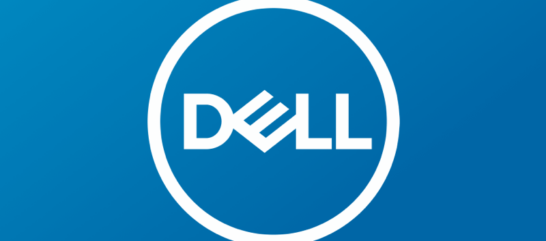Important Employer Branding Statistics to Know
Looking for interesting and relevant employer branding statistics? Below, you’ll find the very best stats that not only apply to HR and recruiters but your company as a whole.
A big reason employer branding is so important today is it’s the business identity of your company.
Positive employer branding helps to attract and retain quality employees, who are crucial to the success and growth of the business.
But, it’s also important for how buyers and prospects view your brand as well.
Most companies in both B2B and B2C have put a lot of time, money, and energy into ensuring there is an employer branding strategy. Yet, this also can be neglected or even forgotten about as businesses focus on so many other things.
Below is a collection of some interesting, important, and maybe even somewhat surprising employer branding stats.
- Employer Branding Statistics
- Social Media Stats Related to Employer Brand
- Dominate Employer Branding with Social and Employees
Employer Branding Statistics
Here are some interesting — even surprising — employer brand stats that are important for your company to understand.
- 96% of companies believe employer brand and reputation can positively or negatively impact revenue, yet less than half (44%) monitor that impact. (CareerArc)
- 78% of job candidates say the overall candidate experience they get is an indicator of how a company values its people. (Talent Adore)
- When making a decision on where to apply for a job, 84% of job seekers say the reputation of a company as an employer is important. (TalentNow)
- 9 out of 10 candidates would apply for a job when it’s from an employer brand that’s actively maintained. (Workable)
- 50% of candidates say they wouldn’t work for a company with a bad reputation – even for a pay increase. (TalentNow)
- Employee turnover can be reduced by 28% by investing in employer brand. (Office Vibe)
- 80% of talent acquisition managers believe that employer branding has a significant impact on the ability to hire great talent. (LinkedIn)
- Negative reputation costs companies at least 10% more per hire. (Harvard Business Review)
- If they had unlimited budgets, companies would like to invest in employer branding most (53%). (LinkedIn)
- 60% of recruiters believe culture fit is of the highest importance when making a decision whether to hire or not. (Jobvite)
- 86% of U.S. women and 67% of U.S. men wouldn’t join a company with a bad reputation. (CRO Magazine)
- The top three channels SMBs plan to extend their employer brand are company website (69%), online professional networks (61%), social media (47%). (LinkedIn)
- Negative reviews of products & services are the #1 factor damaging employer brand (rated as “damaging” by 95% of workers and “very damaging” or “extremely damaging” by 80% of workers). (CareerArc)
- 92% of people would consider changing jobs if offered a role with a company with an excellent corporate reputation. (CR Magazine)
- 62% of Glassdoor users agree their perception of a company improves after seeing an employer respond to a review. (Glassdoor)
- 86% of HR professionals say recruitment is becoming more like marketing. (iCIMS)
- 64% of consumers have stopped purchasing a brand after hearing news of that company’s poor employee treatment. (CareerArc)
- 49% of employers believe they don’t have the tools to effectively enhance employer brand. (CareerArc)
- The top three channels SMBs plan to extend their employer brand are company website (69%), online professional networks (61%), social media (47%). (LinkedIn)
How Social Media Factors Into Employer Branding
The above employer brand statistics show the power of company culture and providing the best service for buyers, prospects, and employees.
Your company’s brand and online reputation are Major decision factors for all aspects of business growth. And one of those drivers of ensuring your company’s employer branding success is social media.
A majority of job candidates, buyers, and employees are researching, engaging, and posting on social media platforms.
Here are some employer branding stats as it relates to social media
- Job seekers rank social media and professional networks as the most useful job search resource compared to job boards, job ads, recruiting agencies, and recruiting events. (CareerArc)
- 75% of U.S. respondents believe that companies whose C-Suite executives and leadership team use social media to communicate about their core mission, brand values and purpose are more trustworthy. (Glassdoor)
- Social media channels serve as a “window into company culture”, with Facebook being used by 21% of candidates who want to get a sense of company culture based on browsing photos and content on the site. (Jobvite)
- Increasing employer brand and recognition comes second on the list of reasons why organizations use social media for recruitment, with 77% of survey respondents answering this way (preceded only by recruiting passive candidates with 82%). (SHRM)
- Companies believe that social media marketing will be the most in-demand HR skill by 2020, 2nd being data analysis, followed by predictive modeling skills. (CareerArc)
- 79% of job applicants use social media in their job search. (Glassdoor)
- 68% of Millennials visit employer’s social media properties specifically to evaluate the employer’s brand, 12% more than Gen-Xers and 20% more than Boomers. (CareerArc)
- 76% of companies choose social media to communicate employer brand. (TalentLyft)
Dominate Employer Branding with Social and Employees
For your company to have success in employer branding and reputation, your goals and initiatives have to be genuine from the start.
Being fake about your employer brand initiatives and culture can be seen from a mile away.
So before anything, employer branding must start with company executives and HR working together to build a culture that people want to work for and want to do business with.
This is only a piece, but it’s important to start there.
In most companies, employer branding falls on HR, recruitment teams, and pending company size, may even have employer brand teams.
This also can be in collaboration with marketing and communications teams to ensure messaging, brand, and communication among employees and buyers.
Yet, this does not have to be limited to those teams.
- 98% of employees use at least one social media site for personal use, of which 50% are already posting about their company. (Weber Shandwick)
- Employee voice is 3x more credible than the CEO’s when it comes to talking about working condition in that company. (Edelman Trust Barometer)
You already know from the other stats in this post, social media is a big driver for employer branding success. Get employees involved in social sharing, while being informed of company news, blog content, company culture and more.
















